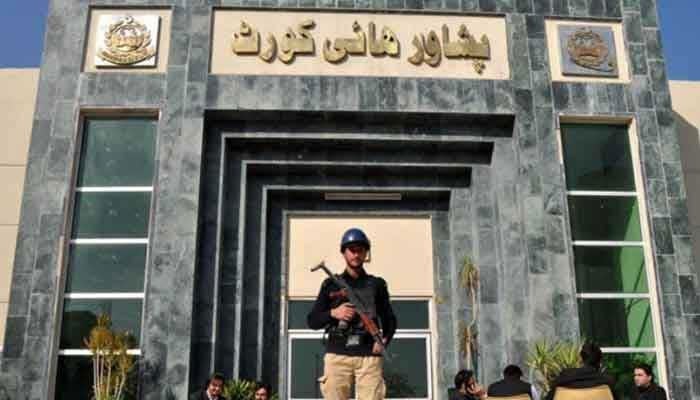Pakistanis with Afghan spouses face uncertainty
PESHAWAR: The recent government decision to deport undocumented foreigners has left numerous Pakistani citizens, who have been married to Afghan nationals for many years, grappling with uncertainty.
Over the decades, thousands of local men have married Afghan women, and a considerable number of local women have wed Afghan men. Many of these couples have built families and led content lives.
However, the government’s move has prompted over 120 such citizens to approach the Peshawar High Court, seeking Pakistani-origin cards for their spouses, with whom they have shared their lives for years. These individuals are determined not to be separated from their spouses, especially considering the children involved.
The Peshawar High Court deliberated on five cases involving Afghan nationals married to Pakistani citizens on Friday. Additionally, 120 other cases have been consolidated and scheduled for a final hearing on December 1. According to their counsel, Saifullah Muhib Kakakhel, the PHC’s division bench, comprising Justice Arshad Ali and Justice Waqar Ahmad, decided to forward the five cases to the National Database and Registration Authority (Nadra) for the issuance of Pakistani-origin cards. The court also ordered assistance from both international and local legal perspectives, citing judgments from other countries.
The Attorney General’s office was instructed to support the court in this matter. Among the cases heard, 23 involved Pakistani women married to Afghan citizens seeking Pakistani-origin cards for their spouses. The counsel argued that NADRA’s rules allow for the grant of Pakistani-origin cards to any foreigner not holding Pakistani citizenship but married to a Pakistani. He further emphasised that international and national laws, along with judicial precedents, support the petitioners’ right to certain fundamental rights while residing in Pakistan, notably the right to a peaceful and unhindered marital life.
The counsel criticised Nadra for allegedly disregarding its own rules and labelling Afghans as “enemy aliens,” asserting that the Pakistani-origin card enables foreigners to enjoy almost all rights of a Pakistani citizen, barring voting in elections and obtaining a passport. The influx of cases intensified after the government announced the repatriation of Afghans lacking Proof of Registration cards or Afghan Citizen Cards, leading to over 215,000 Afghans returning home since September 17.
Notably, in October of the previous year, the Peshawar High Court had ruled in favour of Naseer Muhammad, an Afghan husband to a Pakistani woman named Sameena, affirming his entitlement to a Pakistani-origin card.
The court had also recently decided in favour of Zeenat Begum, a local woman married to an Afghan national who sought the court’s intervention to prevent separation from her spouse. Despite tens of thousands of families repatriating following the deadline for undocumented foreigners, many local spouses have resisted returning with their husbands. Tragically, a recent incident in Nowshera saw a woman killed by her Afghan spouse after she refused to relocate to Afghanistan.
-
 Czech Republic Supports Social Media Ban For Under-15
Czech Republic Supports Social Media Ban For Under-15 -
 Prince William Ready To End 'shielding' Of ‘disgraced’ Andrew Amid Epstein Scandal
Prince William Ready To End 'shielding' Of ‘disgraced’ Andrew Amid Epstein Scandal -
 Chris Hemsworth Hailed By Halle Berry For Sweet Gesture
Chris Hemsworth Hailed By Halle Berry For Sweet Gesture -
 Blac Chyna Reveals Her New Approach To Love, Healing After Recent Heartbreak
Blac Chyna Reveals Her New Approach To Love, Healing After Recent Heartbreak -
 Royal Family's Approach To Deal With Andrew Finally Revealed
Royal Family's Approach To Deal With Andrew Finally Revealed -
 Super Bowl Weekend Deals Blow To 'Melania' Documentary's Box Office
Super Bowl Weekend Deals Blow To 'Melania' Documentary's Box Office -
 Meghan Markle Shares Glitzy Clips From Fifteen Percent Pledge Gala
Meghan Markle Shares Glitzy Clips From Fifteen Percent Pledge Gala -
 Melissa Jon Hart Explains Rare Reason Behind Not Revisting Old Roles
Melissa Jon Hart Explains Rare Reason Behind Not Revisting Old Roles -
 Meghan Markle Eyeing On ‘Queen’ As Ultimate Goal
Meghan Markle Eyeing On ‘Queen’ As Ultimate Goal -
 Japan Elects Takaichi As First Woman Prime Minister After Sweeping Vote
Japan Elects Takaichi As First Woman Prime Minister After Sweeping Vote -
 Kate Middleton Insists She Would Never Undermine Queen Camilla
Kate Middleton Insists She Would Never Undermine Queen Camilla -
 King Charles 'terrified' Andrew's Scandal Will End His Reign
King Charles 'terrified' Andrew's Scandal Will End His Reign -
 Winter Olympics 2026: Lindsey Vonn’s Olympic Comeback Ends In Devastating Downhill Crash
Winter Olympics 2026: Lindsey Vonn’s Olympic Comeback Ends In Devastating Downhill Crash -
 Adrien Brody Opens Up About His Football Fandom Amid '2026 Super Bowl'
Adrien Brody Opens Up About His Football Fandom Amid '2026 Super Bowl' -
 Barbra Streisand's Obsession With Cloning Revealed
Barbra Streisand's Obsession With Cloning Revealed -
 What Did Olivia Colman Tell Her Husband About Her Gender?
What Did Olivia Colman Tell Her Husband About Her Gender?




